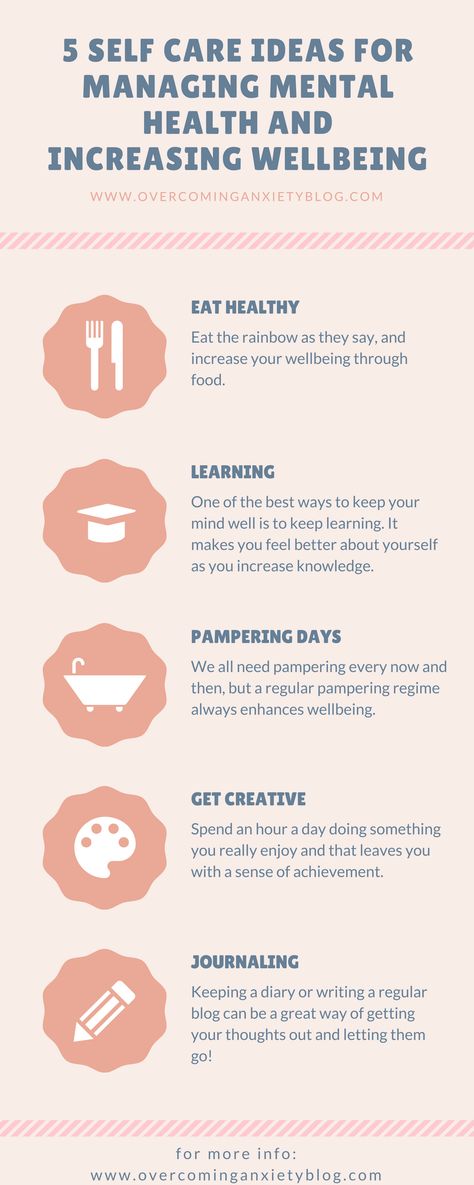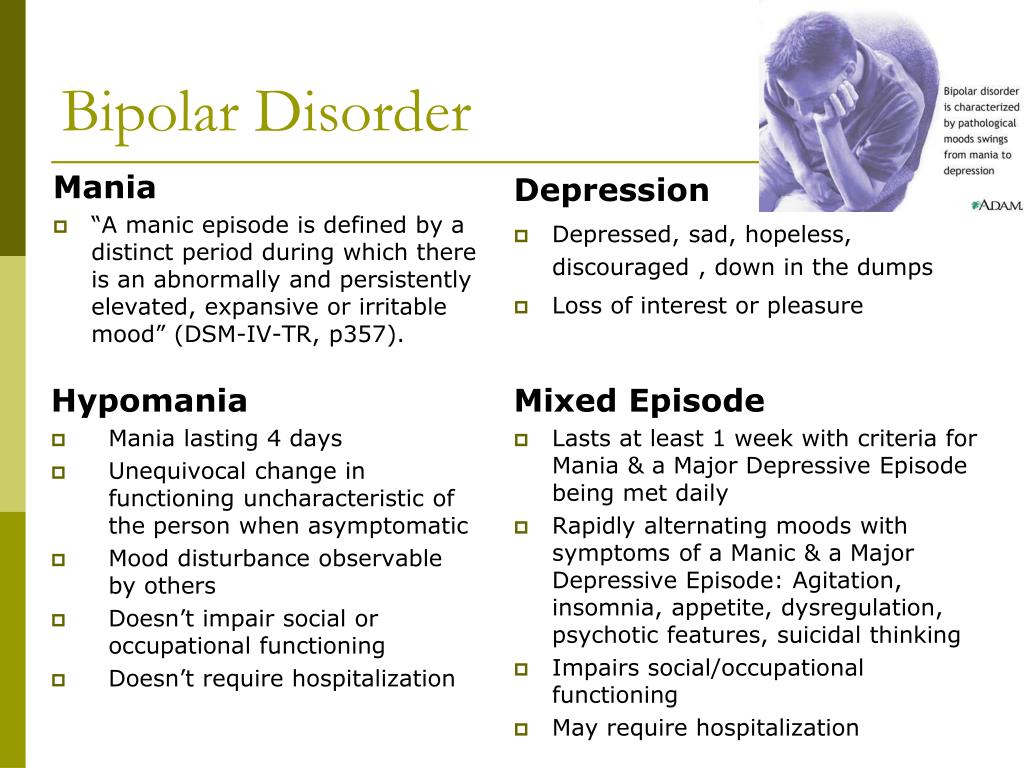Self care for caregivers
Self-Care for Caregivers | Patient Education
The physical and emotional demands of caring for a loved one with a serious illness can be exhausting and even lead to burnout. It's important to maintain your own health and well-being so you can provide the best possible care.
Here are tips for handling some of the common challenges for caregivers:
- Take time for yourself and your own needs. Watch for signs of stress, such as impatience, loss of appetite or difficulty with sleep, concentration or memory. Pay attention to changes in your mood, a loss of interest in usual activities or an inability to accomplish usual tasks.
- Eat a well-balanced diet. Drink plenty of water every day.
- Exercise by taking short walks daily or at least three times a week.
- Listen to guided relaxation recordings or relaxing music.
- Schedule short rest periods between activities. Make it a priority to get a good night's sleep.
- Set limits for what you can do.
- Don't overload your daily to-do list. Be realistic.
- Find a few hours several times a week for activities that you find meaningful and enjoyable.
- Let family members and friends help with household chores, meal preparation, childcare and shopping.
- Keep the lines of communication open among your loved one, you, your family and friends, and the health care team.
- Share your feelings with family members or other caregivers, or join a support group.
- Give yourself credit: The care you give does make a difference.
You are not alone. UCSF Health offers experienced and sensitive social workers and case managers to help patients and their families cope with illness, hospitalization and medical treatment.
Adapted from "Self-Care for the Caregiver," Oncology Nursing Society, 2001.
UCSF Health medical specialists have reviewed this information. It is for educational purposes only and is not intended to replace the advice of your doctor or other health care provider. We encourage you to discuss any questions or concerns you may have with your provider.
We encourage you to discuss any questions or concerns you may have with your provider.
Patient Resource
Case Management & Social Work
Connect with a team that can help you find resources, solve problems and advocate for you during treatment at UCSF.
Support Group
Cancer Support Groups
These groups offered by the Ida and Joseph Friend Patient and Family Cancer Support Center are free and available to all patients, whether or not you get your health care at UCSF.
Patient Resource
Oncology Social Work
Social workers offer support, problem-solving, help accessing UCSF cancer-related resources and more. Find out how to contact the social worker for your clinic.
Patient Resource
Patient & Family Cancer Support Center
The center offers wellness programming, community, support groups, classes, workshops and more at no cost to people facing cancer and their loved ones.
Support Group
Peer Support Programs for Cancer
Patients are matched with peer support volunteers according to criteria such as diagnosis, cancer stage, age or gender. Speak to someone who's "been there."
Speak to someone who's "been there."
Support Group
Organ Transplant Support Groups
Our heart, lung and liver transplant groups offer peer-based support for pre- and post -transplant patients, LVAD patients, families and caregivers.
Support Group
Neurology Support Groups
Find support for caregivers, families and patients dealing with aneurysm and AVM disorders, Parkinson's, MS and other neurological disorders.
Patient Resource
Neuro-Oncology Caregiver Program
If you're caring for someone with a brain tumor, our program can help with guidance, information, resources and support at this difficult time. Find out more.
Patient Resource
Patient Relations
We welcome feedback about your experience at UCSF Health. Find out how to contact us with comments, questions or concerns.
Patient Resource
Spiritual Care Services
Chaplains representing many faiths are available around the clock to provide support, comfort and counsel to patients, families and caregivers.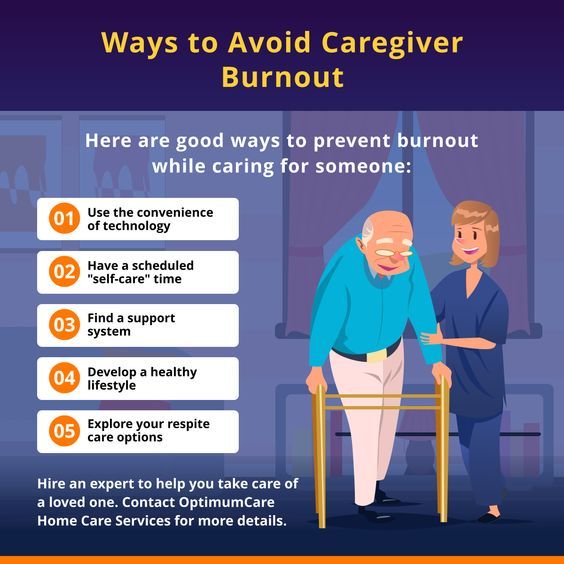
Taking Care of YOU: Self-Care for Family Caregivers
First, Care for Yourself
On an airplane, an oxygen mask descends in front of you. What do you do? As we all know, the first rule is to put on your own oxygen mask before you assist anyone else. Only when we first help ourselves can we effectively help others. Caring for yourself is one of the most important—and one of the most often forgotten—things you can do as a caregiver. When your needs are taken care of, the person you care for will benefit, too.
Effects of Caregiving on Health and Well-Being
We hear this often: “My husband is the person with Alzheimer’s, but now I’m the one in the hospital!” Such a situation is all too common. Researchers know a lot about the effects of caregiving on health and well-being. For example, if you are a caregiving spouse between the ages of 66 and 96 and are experiencing mental or emotional strain, you have a risk of dying that is 63 percent higher than that of people your age who are not caregivers. 1 The combination of loss, prolonged stress, the physical demands of caregiving, and the biological vulnerabilities that come with age place you at risk for significant health problems as well as an earlier death.
1 The combination of loss, prolonged stress, the physical demands of caregiving, and the biological vulnerabilities that come with age place you at risk for significant health problems as well as an earlier death.
Older caregivers are not the only ones who put their health and well-being at risk. If you are a baby boomer who has assumed a caregiver role for your parents while simultaneously juggling work and raising adolescent children, you face an increased risk for depression, chronic illness, and a possible decline in quality of life.
But despite these risks, family caregivers of any age are less likely than non-caregivers to practice preventive healthcare and self-care behavior. Regardless of age, sex, and race and ethnicity, caregivers report problems attending to their own health and well-being while managing caregiving responsibilities. They report:
- Sleep deprivation
- Poor eating habits
- Failure to exercise
- Failure to stay in bed when ill
- Postponement of or failure to make medical appointments for themselves
Family caregivers are also at increased risk for depression and excessive use of alcohol, tobacco, and other drugs. Caregiving can be an emotional roller coaster. On the one hand, caring for your family member demonstrates love and commitment and can be a very rewarding personal experience. On the other hand, exhaustion, worry, inadequate resources, and continuous care demands are enormously stressful. Caregivers are more likely to have a chronic illness than are non-caregivers, namely high cholesterol, high blood pressure, and a tendency to be overweight. Studies show that an estimated 46 percent to 59 percent of caregivers are clinically depressed.
Caregiving can be an emotional roller coaster. On the one hand, caring for your family member demonstrates love and commitment and can be a very rewarding personal experience. On the other hand, exhaustion, worry, inadequate resources, and continuous care demands are enormously stressful. Caregivers are more likely to have a chronic illness than are non-caregivers, namely high cholesterol, high blood pressure, and a tendency to be overweight. Studies show that an estimated 46 percent to 59 percent of caregivers are clinically depressed.
Taking Responsibility for Your Own Care
You cannot stop the impact of a chronic or progressive illness or a debilitating injury on someone for whom you care. But there is a great deal that you can do to take responsibility for your personal well-being and to get your own needs met.
Identifying Personal Barriers
Many times, attitudes and beliefs form personal barriers that stand in the way of caring for yourself.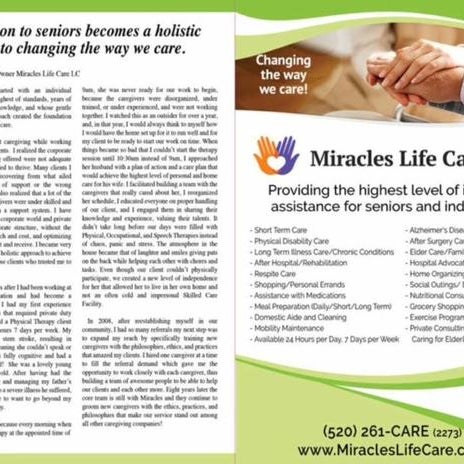 Not taking care of yourself may be a lifelong pattern, with taking care of others an easier option. However, as a family caregiver you must ask yourself: “What good will I be to the person I care for if I become ill? If I die?” Breaking old patterns and overcoming obstacles is not an easy proposition, but it can be done—regardless of your age or situation. The first task in removing personal barriers to self-care is to identify what is in your way. For example:
Not taking care of yourself may be a lifelong pattern, with taking care of others an easier option. However, as a family caregiver you must ask yourself: “What good will I be to the person I care for if I become ill? If I die?” Breaking old patterns and overcoming obstacles is not an easy proposition, but it can be done—regardless of your age or situation. The first task in removing personal barriers to self-care is to identify what is in your way. For example:
- Do you think you are being selfish if you put your needs first?
- Is it frightening to think of your own needs? What is the fear about?
- Do you have trouble asking for what you need? Do you feel inadequate if you ask for help?
- Do you feel you have to prove that you are worthy of the care recipient’s affection? Do you do too much as a result?
Sometimes caregivers have misconceptions that increase their stress and get in the way of good self-care.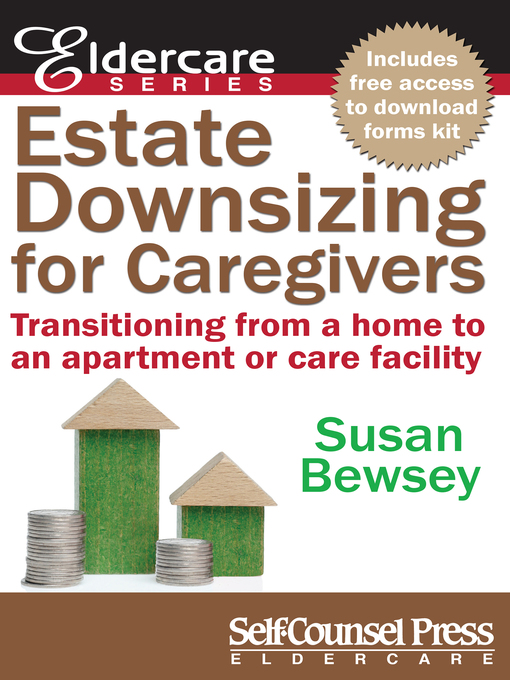 Here are some of the most commonly expressed:
Here are some of the most commonly expressed:
- I am responsible for my parent’s health.
- If I donʼt do it, no one will.
- If I do it right, I will get the love, attention, and respect I deserve.
- Our family always takes care of their own.
- I promised my father I would always take care of my mother.
“I never do anything right,” or “Thereʼs no way I could find the time to exercise” are examples of negative self-talk, another possible barrier that can cause unnecessary anxiety. Instead, try positive statements: “Iʼm good at giving John a bath.” “I can exercise for 15 minutes a day.” Remember, your mind tends to believe what you tell it.
Because we base our behavior on our thoughts and beliefs, attitudes and misconceptions like those noted above can cause caregivers to continually attempt to do what cannot be done, to control what cannot be controlled. The result is feelings of continued failure and frustration and, often, an inclination to ignore your own needs. Ask yourself what might be getting in your way and keeping you from taking care of yourself.
The result is feelings of continued failure and frustration and, often, an inclination to ignore your own needs. Ask yourself what might be getting in your way and keeping you from taking care of yourself.
Moving Forward
Once youʼve started to identify any personal barriers to good self-care, you can begin to change your behavior, moving forward one small step at a time. Following are some effective tools for self-care that can start you on your way.
Tool #1: Reducing Personal Stress
How we perceive and respond to an event is a significant factor in how we adjust and cope with it. The stress you feel is not only the result of your caregiving situation but also the result of your perception of it—whether you see the glass as half-full or half-empty. It is important to remember that you are not alone in your experiences.
Your level of stress is influenced by many factors, including the following:
- Whether your caregiving is voluntary.
 If you feel you had no choice in taking on the responsibilities, the chances are greater that you will experience strain, distress, and resentment.
If you feel you had no choice in taking on the responsibilities, the chances are greater that you will experience strain, distress, and resentment. - Your relationship with the care recipient. Sometimes people care for another with the hope of healing a relationship. If healing does not occur, you may feel regret and discouragement.
- Your coping abilities. How you coped with stress in the past predicts how you will cope now. Identify your current coping strengths so that you can build on them.
- Your caregiving situation. Some caregiving situations are more stressful than others. For example, caring for a person with dementia is often more stressful than caring for someone with a physical limitation.
- Whether or not support is available.
Steps to Managing Stress
- Recognize warning signs early. These might include irritability, sleep problems, and forgetfulness. Know your own warning signs, and act to make changes.
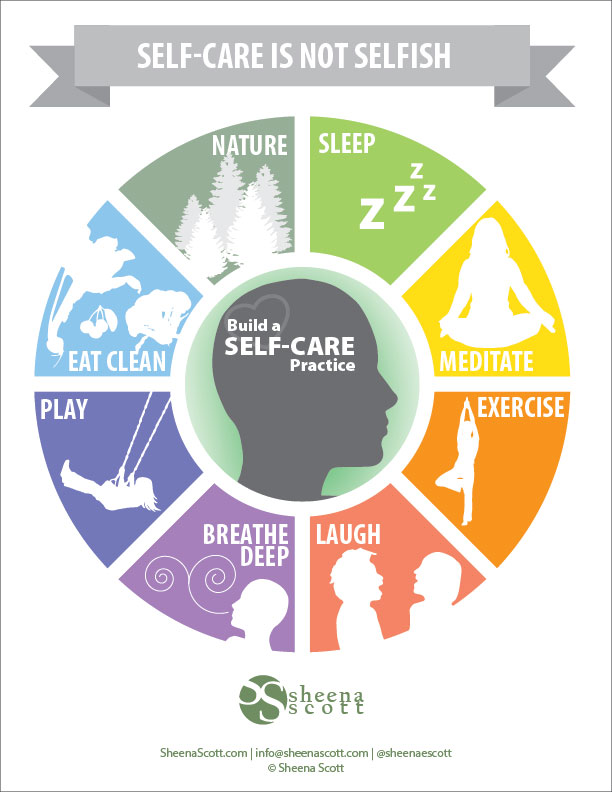 Donʼt wait until you are overwhelmed.
Donʼt wait until you are overwhelmed. - Identify sources of stress. Ask yourself, “What is causing stress for me?” Sources of stress might be that you have too much to do, family disagreements, feelings of inadequacy, or the inability to say no.
- Identify what you can and cannot change. Remember, we can only change ourselves; we cannot change another person. When you try to change things over which you have no control, you will only increase your sense of frustration. Ask yourself, “What do I have some control over? What can I change?” Even a small change can make a big difference. The challenge we face as caregivers is well expressed in the following words modified from the original Serenity Prayer (attributed to American theologian Reinhold Niebuhr):
“God grant me the serenity to accept the things I cannot change,
Courage to change the things I can,
and (the) wisdom to know the difference.” - Take action. Taking some action to reduce stress gives us back a sense of control.
 Stress reducers can be simple activities like walking and other forms of exercise, gardening, meditation, or having coffee with a friend. Identify some stress reducers that work for you.
Stress reducers can be simple activities like walking and other forms of exercise, gardening, meditation, or having coffee with a friend. Identify some stress reducers that work for you.
Tool #2: Setting Goals
Setting goals or deciding what you would like to accomplish in the next three to six months is an important tool for taking care of yourself. Here are some sample goals you might set:
- Take a break from caregiving.
- Get help with caregiving tasks like bathing and preparing meals.
- Engage in activities that will make you feel more healthy.
- Goals are generally too big to work on all at once. We are more likely to reach a goal if we break it down into smaller action steps. Once you’ve set a goal, ask yourself, “What steps do I take to reach my goal?” Make an action plan by deciding which step you will take first, and when. Then get started!
Example (Goal and Action Steps):
Goal: Feel more healthy.
Possible action steps:
- Make an appointment for a physical checkup.
- Take a half-hour break once during the week.
- Walk three times a week for 10 minutes.
Tool #3: Seeking Solutions
Seeking solutions to difficult situations is, of course, one of the most important tools in caregiving. Once youʼve identified a problem, taking action to solve it can change the situation and also change your attitude to a more positive one, giving you more confidence in your abilities.
Steps for Seeking Solutions
- Identify the problem. Look at the situation with an open mind. The real problem might not be what first comes to mind. For example, you think that the problem is simply that you are tired all the time, when the more basic difficulty is your belief that “no one can care for John like I can.” The problem? Thinking that you have to do everything yourself.
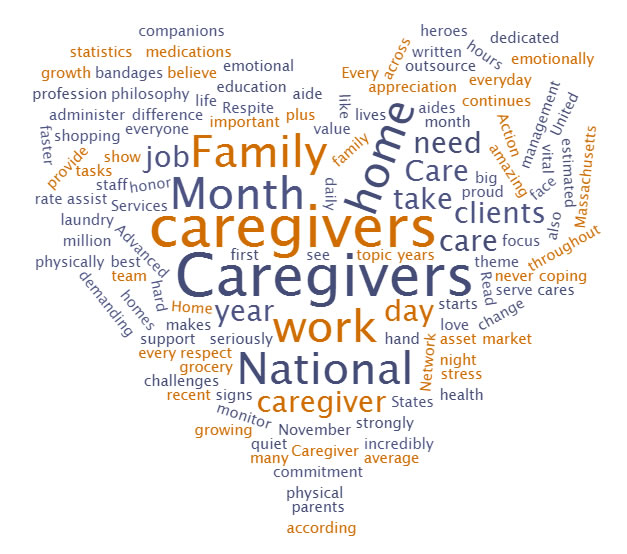
- List possible solutions. One idea is to try a different perspective: “Even though someone else provides help to John in a different way than I do, it can be just as good.” Ask a friend to help. Call Family Caregiver Alliance or the Eldercare Locator (see Resources list) and ask about agencies in your area that could help provide care.
- Select one solution from the list. Then try it!
- Evaluate the results. Ask yourself how well your choice worked.
- Try a second solution. If your first idea didnʼt work, select another. But donʼt give up on the first; sometimes an idea just needs fine-tuning.
- Use other resources. Ask friends, family members, and professionals for suggestions.
- If nothing seems to help, accept that the problem may not be solvable now. You can revisit it at another time.
Note: All too often, we jump from Step 1 to Step 7 and then feel defeated and stuck. Concentrate on keeping an open mind while listing and experimenting with possible solutions.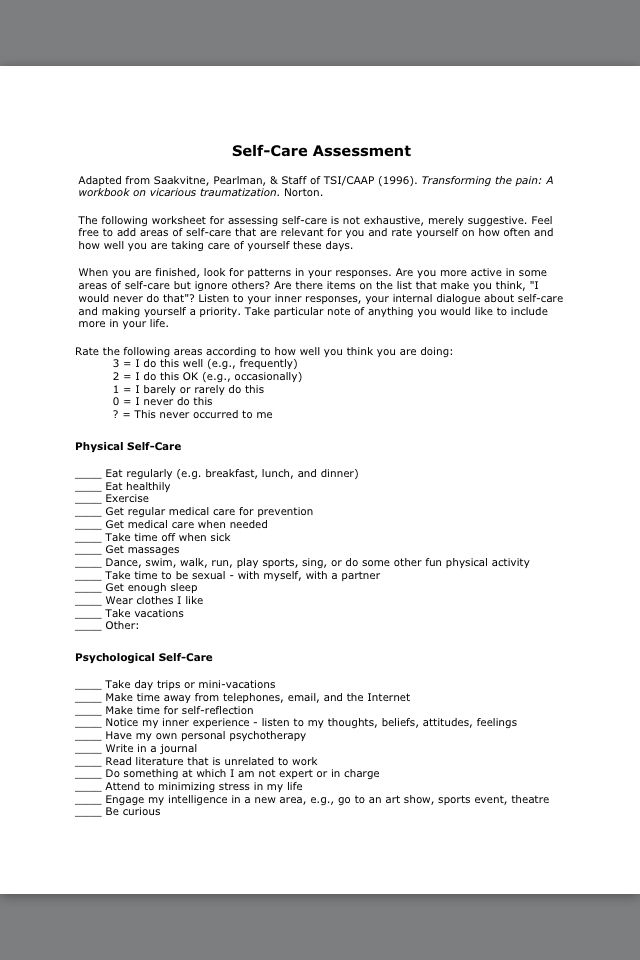
Tool #4: Communicating Constructively
Being able to communicate constructively is one of a caregiverʼs most important tools. When you communicate in ways that are clear, assertive, and constructive, you will be heard and get the help and support you need. The box below shows basic guidelines for good communication.
Communication Guidelines
- Use “I” messages rather than “you” messages. Saying “I feel angry” rather than “You made me angry” enables you to express your feelings without blaming others or causing them to become defensive.
- Respect the rights and feelings of others. Do not say something that will violate another personʼs rights or intentionally hurt the personʼs feelings. Recognize that the other person has the right to express feelings.
- Be clear and specific. Speak directly to the person. Donʼt hint or hope the person will guess what you need.
 Other people are not mind readers. When you speak directly about what you need or feel, you are taking the risk that the other person might disagree or say no to your request, but that action also shows respect for the other personʼs opinion. When both parties speak directly, the chances of reaching understanding are greater.
Other people are not mind readers. When you speak directly about what you need or feel, you are taking the risk that the other person might disagree or say no to your request, but that action also shows respect for the other personʼs opinion. When both parties speak directly, the chances of reaching understanding are greater. - Be a good listener. Listening is the most important aspect of communication.
Tool #5: Asking for and Accepting Help
When people have asked if they can be of help to you, how often have you replied, “Thank you, but I’m fine.” Many caregivers donʼt know how to marshal the goodwill of others and are reluctant to ask for help. You may not wish to “burden” others or admit that you can’t handle everything yourself.
Be prepared with a mental list of ways that others could help you. For example, someone could take the person you care for on a 15-minute walk a couple of times a week. Your neighbor could pick up a few things for you at the grocery store. A relative could fill out some insurance papers. When you break down the jobs into very simple tasks, it is easier for people to help. And they do want to help. It is up to you to tell them how.
Your neighbor could pick up a few things for you at the grocery store. A relative could fill out some insurance papers. When you break down the jobs into very simple tasks, it is easier for people to help. And they do want to help. It is up to you to tell them how.
Help can come from community resources, family, friends, and professionals. Ask them. Donʼt wait until you are overwhelmed and exhausted or your health fails. Reaching out for help when you need it is a sign of personal strength.
Tips on How to Ask
- Consider the personʼs special abilities and interests. If you know a friend enjoys cooking but dislikes driving, your chances of getting help improve if you ask for help with meal preparation.
- Resist asking the same person repeatedly. Do you keep asking the same person because she has trouble saying no?
- Pick the best time to make a request. Timing is important. A person who is tired and stressed might not be available to help out.
 Wait for a better time.
Wait for a better time. - Prepare a list of things that need doing. The list might include errands, yard work, or a visit with your loved one. Let the “helper” choose what she would like to do.
- Be prepared for hesitance or refusal. It can be upsetting for the caregiver when a person is unable or unwilling to help. But in the long run, it would do more harm to the relationship if the person helps only because he doesnʼt want to upset you. To the person who seems hesitant, simply say, “Why donʼt you think about it.” Try not to take it personally when a request is turned down. The person is turning down the task, not you. Try not to let a refusal prevent you from asking for help again. The person who refused today may be happy to help at another time.
- Avoid weakening your request. “Itʼs only a thought, but would you consider staying with Grandma while I went to church?” This request sounds like itʼs not very important to you. Use “I” statements to make specific requests: “I would like to go to church on Sunday.
 Would you stay with Grandma from 9 a.m. until noon?”
Would you stay with Grandma from 9 a.m. until noon?”
Tool #6: Talking to the Physician
In addition to taking on the household chores, shopping, transportation, and personal care, 37 percent of caregivers also administer medications, injections, and medical treatment to the person for whom they care. Some 77 percent of those caregivers report the need to ask for advice about the medications and medical treatments. The person they usually turn to is their physician.
But while caregivers will discuss their loved oneʼs care with the physician, caregivers seldom talk about their own health, which is equally important. Building a partnership with a physician that addresses the health needs of the care recipient and the caregiver is crucial. The responsibility of this partnership ideally is shared between you, the caregiver, the physician, and other healthcare staff. However, it will often fall to you to be assertive, using good communication skills, to ensure that everyoneʼs needs are met—including your own.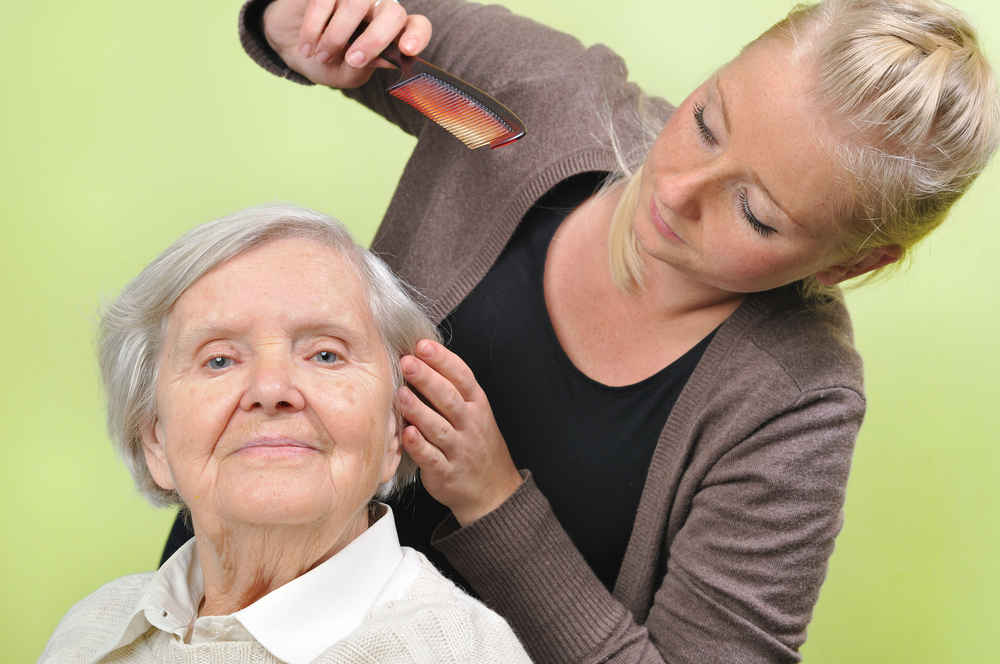
Tips on Communicating with Your Physician
- Prepare questions ahead of time. Make a list of your most important concerns and problems. Issues you might want to discuss with the physician are changes in symptoms, medications or general health of the care recipient, your own comfort in your caregiving situation, or specific help you need to provide care. The physician only sees a moment in time with the patient. Make sure you let him/her know what your concerns are in terms of daily care/health.
- Enlist the help of the nurse. Many caregiving questions relate more to nursing than to medicine. In particular, the nurse can answer questions about various tests and examinations, preparing for surgical procedures, providing personal care, and managing medications at home.
- Make sure your appointment meets your needs. For example, the first appointment in the morning or after lunch are the best times to reduce your waiting time or accommodate numerous questions.
 When you schedule your appointment, be sure you convey clearly the reasons for your visit so that enough time is allowed.
When you schedule your appointment, be sure you convey clearly the reasons for your visit so that enough time is allowed. - Call ahead. Before the appointment, check to see if the doctor is on schedule. Remind the receptionist of special needs when you arrive at the office.
- Take someone with you. A companion can ask questions you feel uncomfortable asking and can help you remember what the physician and nurse said.
- Use assertive communication and “I” messages. Enlist the medical care team as partners in care. Present what you need, what your concerns are, and how the doctor and/or nurse can help. Use specific, clear “I” statements like the following: “I need to know more about the diagnosis; I will feel better prepared for the future if I know what’s in store for me.” Or “I am feeling rundown. I’d like to make an appointment for myself and my husband next week.” Or “I need a way for my mother to sleep at night as I am now exhausted being up every two hours at night with her.
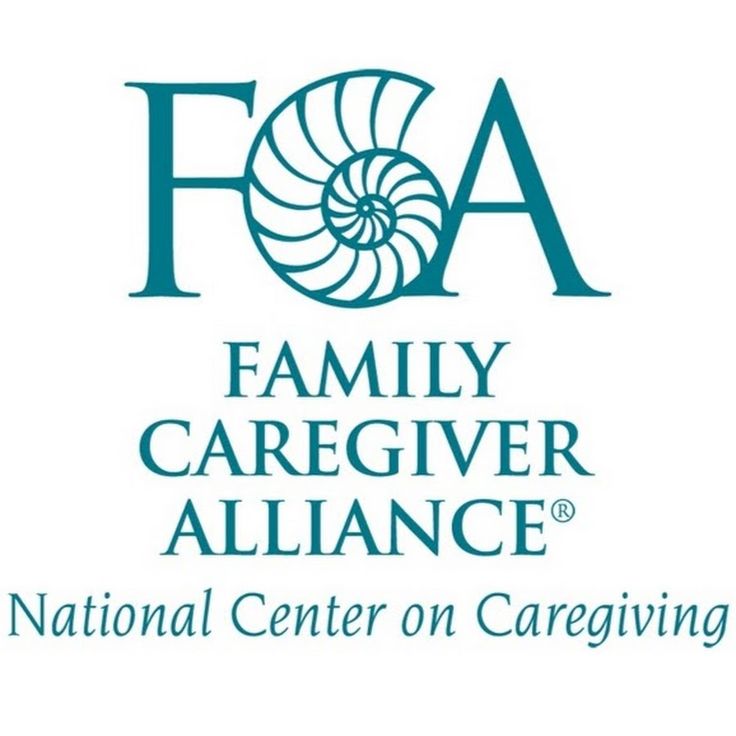 ”
”
Tool #7: Starting to Exercise
You may be reluctant to start exercising, even though youʼve heard itʼs one of the healthiest things you can do. Perhaps you think that physical exercise might harm you, or that it is only for people who are young and able to do things like jogging. Fortunately, research suggests that you can maintain or at least partly restore endurance, balance, strength, and flexibility through everyday physical activities like walking and gardening. Even household chores can improve your health. The key is to increase your physical activity by exercising and using your own muscle power.
Exercise promotes better sleep, reduces tension and depression, and increases energy and alertness. If finding time for exercise is a problem, incorporate it into your daily activity. Perhaps the care recipient can walk or do stretching exercise with you.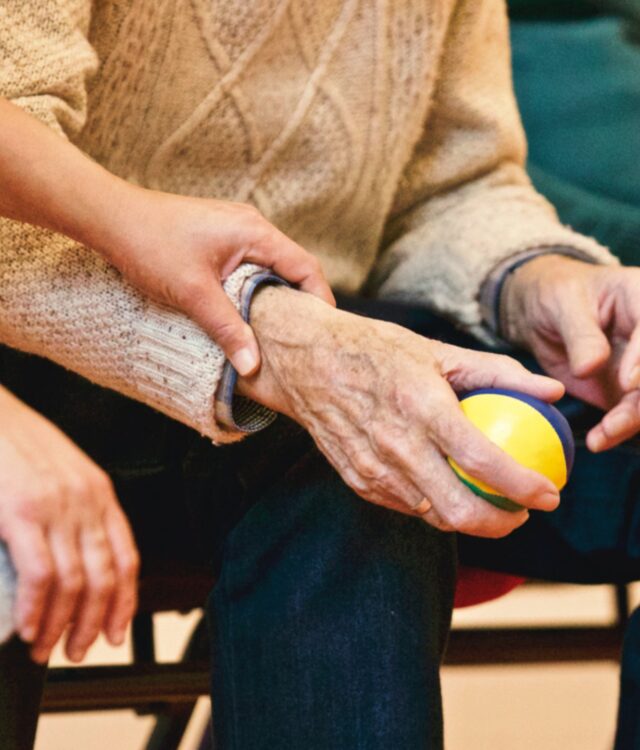 If necessary, do frequent short exercises instead of those that require large blocks of time. Find activities you enjoy.
If necessary, do frequent short exercises instead of those that require large blocks of time. Find activities you enjoy.
Walking, one of the best and easiest exercises, is a great way to get started. Besides its physical benefits, walking helps to reduce psychological tension. Walking 20 minutes a day, three times a week, is very beneficial. If you canʼt get away for that long, try to walk for as long as you can on however many days you can. Work walking into your life. Walk around the mall, to the store, or a nearby park. Walk around the block with a friend.
Tool #8: Learning from Our Emotions
It is a strength to recognize when your emotions are controlling you (instead of you controlling your emotions). Our emotions are messages to which we need to listen. They exist for a reason. However negative or painful, our feelings are useful tools for understanding what is happening to us.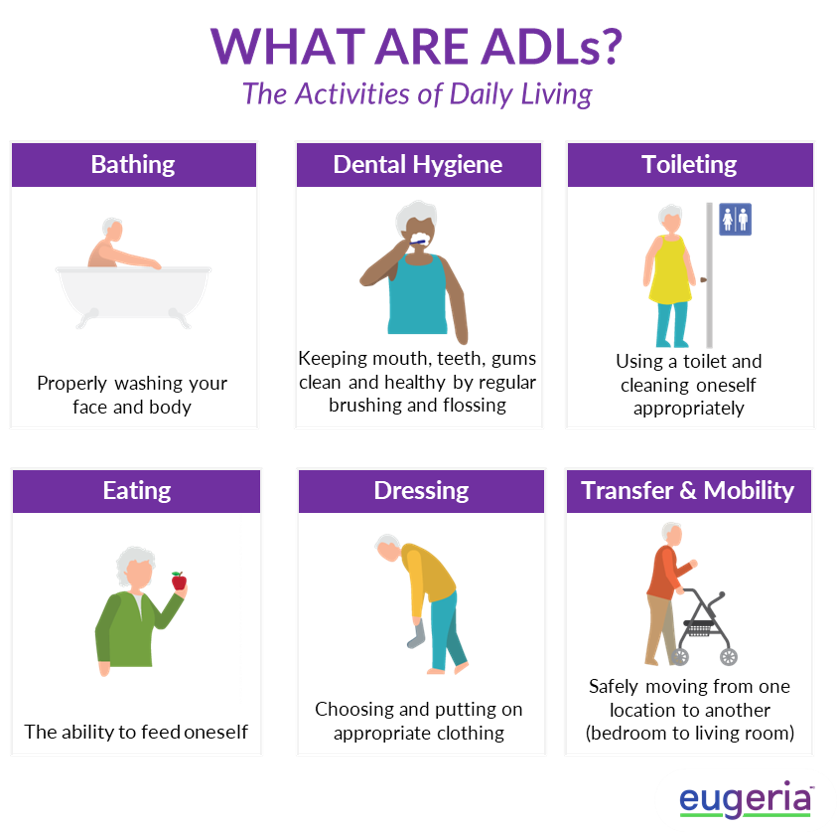 Even feelings such as guilt, anger, and resentment contain important messages. Learn from them, then take appropriate action.
Even feelings such as guilt, anger, and resentment contain important messages. Learn from them, then take appropriate action.
For example, when you cannot enjoy activities you previously enjoyed, and your emotional pain overshadows all pleasure, it is time to seek treatment for depression—especially if you are having thoughts of suicide. Speaking with your physician is the first step. (See the FCA fact sheet Depression and Caregiving.)
Caregiving often involves a range of emotions. Some feelings are more comfortable than others. When you find that your emotions are intense, they might mean the following:
- That you need to make a change in your caregiving situation.
- That you are grieving a loss.
- That you are experiencing increased stress.
- That you need to be assertive and ask for what you need.
Summing Up
Remember, it is not selfish to focus on your own needs and desires when you are a caregiver—itʼs an important part of the job. You are responsible for your own self-care. Focus on the following self-care practices:
You are responsible for your own self-care. Focus on the following self-care practices:
- Learn and use stress-reduction techniques, e.g. meditation, prayer, yoga, Tai Chi.
- Attend to your own healthcare needs.
- Get proper rest and nutrition.
- Exercise regularly, even if only for 10 minutes at a time.
- Take time off without feeling guilty.
- Participate in pleasant, nurturing activities, such as reading a good book, taking a warm bath.
- Seek and accept the support of others.
- Seek supportive counseling when you need it, or talk to a trusted counselor, friend, or pastor.
- Identify and acknowledge your feelings, you have a right to ALL of them.
- Change the negative ways you view situations.
- Set goals.
Resources
Family Caregiver Alliance
National Center on Caregiving
(415) 434-3388 | (800) 445-8106
Website: www.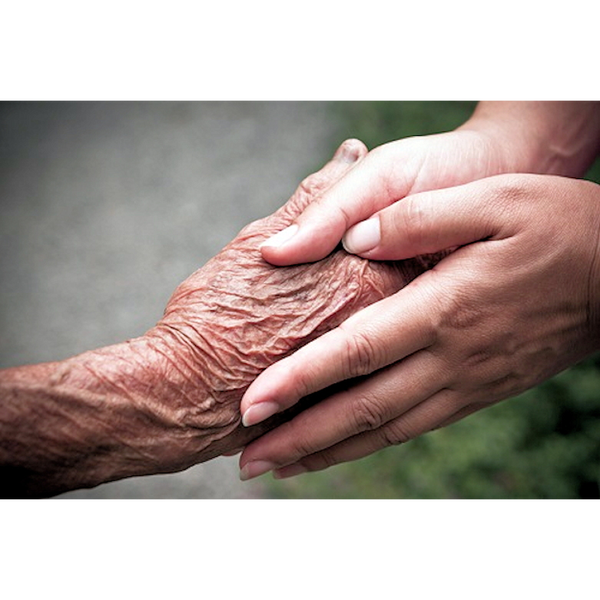 caregiver.org
caregiver.org
Email: [email protected]
FCA CareNav: https://fca.cacrc.org/login
Services by State: https://www.caregiver.org/connecting-caregivers/services-by-state/
Family Caregiver Alliance (FCA) seeks to improve the quality of life for caregivers through education, services, research and advocacy. Through its National Center on Caregiving, FCA offers information on current social, public policy and caregiving issues and provides assistance in the development of public and private programs for caregivers. For residents of the greater San Francisco Bay Area, FCA provides direct support services for caregivers of those with Alzheimer’s disease, stroke, traumatic brain injury, Parkinson’s and other debilitating disorders that strike adults.
Other Organizations and Links
AARP
www.aarp.org
Administration for Community Living
For caregiver support groups, respite providers, and other caregiving services.
www.acl.gov
Eldercare Locator
eldercare.acl.gov
(800) 677-1116
ARCH National Respite Network and Resource Center
www.archrespite.org
Recommended Reading
The Caregiver Helpbook: Powerful Tools for Caregivers
www.powerfultoolsforcaregivers.org
Passages in Caregiving
Sheehy, Gail, Harper Collins, 2010
Credits
1 Shultz, Richard and Beach, Scott (1999). Caregiving as A Risk for Mortality: The Caregiver Health Effects Study. JAMA, December 15, 1999, vol. 282, No. 23.
A special thank you the Powerful Tools for Caregivers program for permission to use information from The Caregiver Helpbook and their Powerful Tools for Caregivers Class Leader Tips Manual.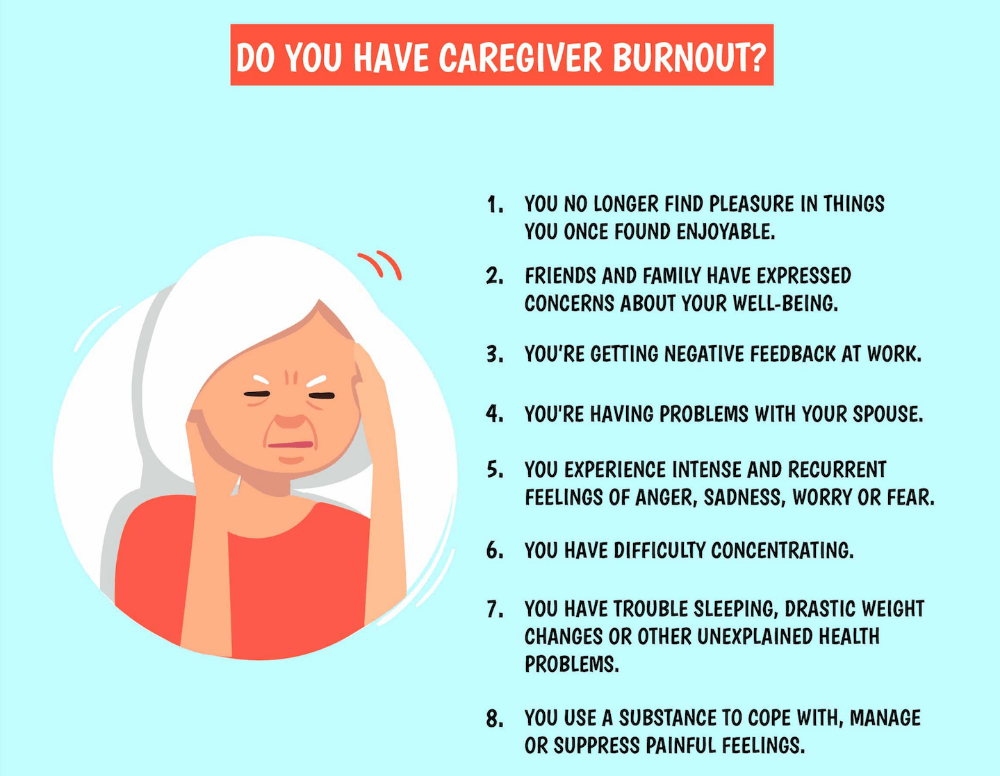 The Caregiver Helpbook is highly recommended reading for caregivers.
The Caregiver Helpbook is highly recommended reading for caregivers.
This fact sheet was prepared by Family Caregiver Alliance. © 2003, 2012 Family Caregiver Alliance. All rights reserved.
Guardian's note
REMINDER OF THE GUARDIAN
Relations arising in connection with the establishment, implementation and termination of guardianship and guardianship are regulated by the Civil Code of the Russian Federation, Federal Law No. 48-FZ of April 24, 2008 "On Guardianship and Guardianship".
1. LEGAL STATUS OF GUARDIANS AND TRUSTEES
1.1. PERFORMANCE BY GUARDIANS AND TRUSTEES OF THEIR DUTIES (Article 36 of the Civil Code of the Russian Federation (hereinafter referred to as the Code), Article 15 of Federal Law No. 48-FZ dated April 24, 2008 "On Guardianship and Trusteeship" (hereinafter referred to as the Law)
1. Obligations for guardianship and trusteeship are performed free of charge, except for cases provided for by law.
Obligations for guardianship and trusteeship are performed free of charge, except for cases provided for by law.
2. Guardians are obliged to take care of the maintenance of their wards, to provide them with care and treatment, to protect their rights and interests.
3. If the grounds on the basis of which the citizen was declared incompetent or partially incapacitated have disappeared, the guardian or trustee is obliged to petition the court to recognize the ward as capable and to remove guardianship or guardianship from him.
4. Guardians are the legal representatives of their wards and have the right to act in defense of the rights and legitimate interests of their wards in any relationship without special authority.
5. Guardians or trustees are obliged to notify the guardianship and guardianship authorities about the change of place of residence of the wards no later than the day following the day the wards leave their former place of residence.
6. In case of temporary absence of the ward at the place of residence, in particular in connection with studies or stay in a medical organization, stay in places of punishment, the exercise of the rights and performance of the duties of a guardian or custodian in relation to the ward does not stop.
1.2. PRELIMINARY GUARDIANCY AND CUSTODIA (Article 12 of the Law)
1. In cases where, in the interests of an incapacitated or incompletely capable citizen, he must immediately appoint a guardian or custodian, the guardianship and guardianship body has the right to adopt an act on the temporary appointment of a guardian or custodian (an act on preliminary guardianship or guardianship).
2. In cases only an adult capable citizen may be temporarily appointed as a guardian or custodian. The adoption of an act on preliminary guardianship or guardianship is allowed subject to the provision of an identity document by the specified person, as well as an examination by the guardianship and guardianship body of his living conditions. No prior verification of the identity of the guardian or custodian is required.
No prior verification of the identity of the guardian or custodian is required.
3. A temporarily appointed guardian or custodian shall have all the rights and obligations of a guardian or custodian, with the exception of the right to dispose of the property of the ward on his behalf (give consent for the ward to make transactions to dispose of his property).
5. Preliminary guardianship or guardianship shall be terminated if, before the expiration of six months from the date of adoption of the act on the temporary appointment of a guardian or custodian, the temporarily appointed guardian or custodian is not appointed as a guardian or custodian in the general manner. In exceptional circumstances, this period may be extended up to eight months. If the body of guardianship and trusteeship has appointed a person who performed duties by virtue of preliminary guardianship or guardianship within the established period in accordance with the general procedure, the rights and obligations of the guardian or trustee shall be deemed to have arisen from the moment the act on the temporary appointment of the guardian or trustee is adopted.
2. LEGAL REGIME OF PROPERTY OF THE GUARD
2.1. DISPOSAL OF PROPERTY OF THE GUARD (Art. 37 of the Code, Art. 19 of the Law)
1. The guardian or custodian disposes of the income of the ward, including the income due to the ward from the management of his property, with the exception of income that the ward has the right to dispose of independently, solely in the interests of the ward and with the prior permission of the guardianship and guardianship authority. The amounts of alimony, pensions, allowances, compensation for harm to health and harm suffered in the event of the death of the breadwinner, as well as other funds paid for the maintenance of the ward, with the exception of income that the ward has the right to dispose of independently, are subject to crediting to a separate nominal account opened by the guardian or custodian in in accordance with Chapter 45 of the Civil Code of the Russian Federation, and are spent by the guardian or trustee without prior permission from the guardianship and guardianship authority.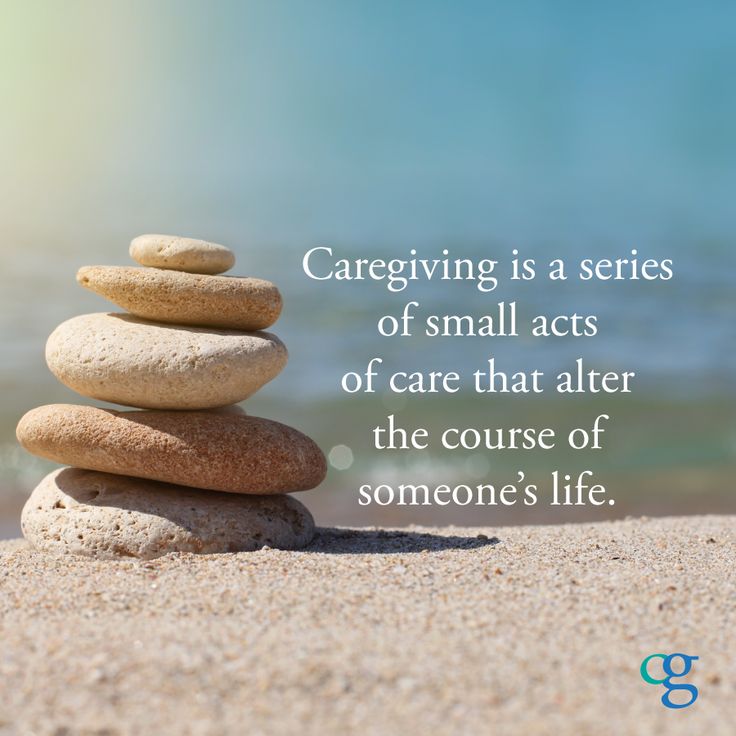 The guardian or trustee submits a report on the expenditure of amounts credited to a separate nominal account in the manner prescribed by the Federal Law "On Guardianship and Guardianship". Cases in which the guardian has the right not to provide a report on the expenditure of amounts credited to a separate nominal account are established by the Federal Law "On Guardianship and Guardianship".
The guardian or trustee submits a report on the expenditure of amounts credited to a separate nominal account in the manner prescribed by the Federal Law "On Guardianship and Guardianship". Cases in which the guardian has the right not to provide a report on the expenditure of amounts credited to a separate nominal account are established by the Federal Law "On Guardianship and Guardianship".
2. The guardian is not entitled, without prior permission of the body of guardianship and guardianship, to make, and the trustee - to give consent to the conclusion of transactions for the alienation, including the exchange or donation of the property of the ward, its leasing (lease), for gratuitous use or as a pledge, transactions entailing the waiver of the rights belonging to the ward, the division of his property or the allocation of shares from it, as well as any other actions that reduce the property of the ward.
3. The guardian, trustee, their spouses and close relatives shall not have the right to make transactions with the ward, except for the transfer of property to the ward as a gift or for gratuitous use, as well as to represent the ward in the conclusion of transactions or in the conduct of court cases between the ward and the spouse of the guardian or trustee and their close relatives.
4. The guardianship and trusteeship authorities shall issue permissions to guardians and trustees and binding instructions in writing regarding the disposal of the property of the wards.
5. The guardian shall have the right to deposit the ward's funds, and the trustee shall have the right to consent to the deposit of the ward's funds to the account or accounts opened with a bank or banks, provided that the said funds, including capitalized (accrued) interest on their amount, are insured against the system of compulsory insurance of deposits of individuals in banks of the Russian Federation and the total amount of funds held on an account or accounts with one bank does not exceed the Federal Law of December 23, 2003 N 177-FZ "On insurance of deposits of individuals in banks of the Russian Federation" the amount of reimbursement on deposits. The spending of the ward's funds deposited in banks is carried out in compliance with the provisions of civil law on the legal capacity of citizens and the provisions of paragraph 1 of Article 37 of the Civil Code of the Russian Federation.
If the total amount of funds on the account or accounts in one bank exceeds the amount of compensation for deposits provided for by Federal Law of December 23, 2003 N 177-FZ "On insurance of deposits of individuals in banks of the Russian Federation", the bank no later on the next working day notifies the guardian or custodian, as well as the body of guardianship and guardianship of the amount of such an excess and the consequences of such an excess.
These requirements also apply to funds held in a nominal account that is opened to a guardian or custodian and the beneficiary of which is the ward, while such a nominal account is opened to the guardian or custodian for each ward
6. The guardian is not entitled to conclude a loan agreement and a loan agreement on behalf of the ward acting as a borrower, and the trustee is not entitled to give consent to the conclusion of such agreements, except in cases where obtaining a loan is required in order to maintain the ward or provide him with living quarters. A loan agreement, a loan agreement on behalf of the ward in these cases are concluded with the prior permission of the guardianship and guardianship authority. When submitting an application for a permit, the guardian or custodian must indicate at the expense of what property the loan obligation will be fulfilled.
A loan agreement, a loan agreement on behalf of the ward in these cases are concluded with the prior permission of the guardianship and guardianship authority. When submitting an application for a permit, the guardian or custodian must indicate at the expense of what property the loan obligation will be fulfilled.
7. The property of the ward is not subject to transfer to a loan, except for the case when the repayment of the loan is secured by a mortgage (mortgage of real estate).
8. The guardian is not entitled to conclude an agreement on the transfer of the property of the ward for use, and the trustee is not entitled to give consent to the conclusion of such an agreement if the period of use of the property exceeds five years. In exceptional cases, the conclusion of an agreement on the transfer of the property of a ward for use for a period of more than five years is allowed with the prior permission of the guardianship and guardianship body in the presence of circumstances indicating the special benefit of such an agreement, unless a different deadline is established by federal law.
2.2. PROTECTION OF PROPERTY OF THE GUARD (Article 18 of the Law).
1. A guardian or custodian, with the exception of custodians of citizens restricted by the court in their legal capacity, is obliged to accept the property of the ward according to the inventory from the persons who kept it, within three days from the moment their rights and obligations arise.
2. An inventory of the property of the ward is compiled by the guardianship and guardianship body in the presence of the guardian, representatives of the homeowners' association, housing, housing construction or other specialized consumer cooperative that manages the apartment building, the managing organization or internal affairs bodies. When drawing up an inventory of the property of the ward, other interested persons may be present. The inventory of the property of the ward is drawn up in two copies and signed by all persons participating in its compilation. One copy of the inventory is transferred to the guardian, the other copy of the inventory is subject to storage in the file of the ward, which is maintained by the body of guardianship and guardianship.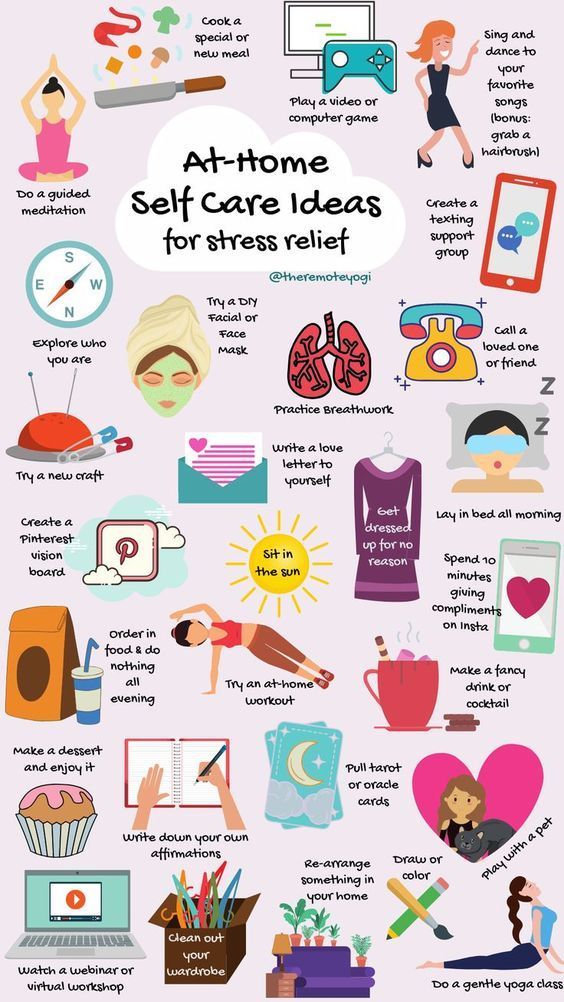
3. If necessary, if this is required by the interests of the ward, the guardian or custodian is immediately obliged to file a lawsuit with the court for the recovery of the property of the ward from someone else's illegal possession or to take other measures to protect the property rights of the ward.
4. The guardian and trustee are obliged to take care of the property of the wards transferred to them as if they were their own, not to allow the value of the property of the ward to decrease and to facilitate the extraction of income from it. The fulfillment by the guardian and custodian of these duties is carried out at the expense of the property of the ward.
2.3. FEATURES OF DISPOSAL OF REAL ESTATE BELONGING TO A GUARD (Article 20 of the Law)
1. The immovable property belonging to the ward is not subject to alienation, except for:
1) forcible foreclosure on the grounds and in the manner established by federal law, including when foreclosing the subject of pledge;
2) alienation under an annuity agreement, if such an agreement is made to the benefit of the ward;
3) alienation under an exchange agreement, if such an agreement is made to the benefit of the ward;
4) alienation of residential premises belonging to the ward, when changing the place of residence of the ward;
5) alienation of immovable property in exceptional cases (the need to pay for expensive treatment, etc.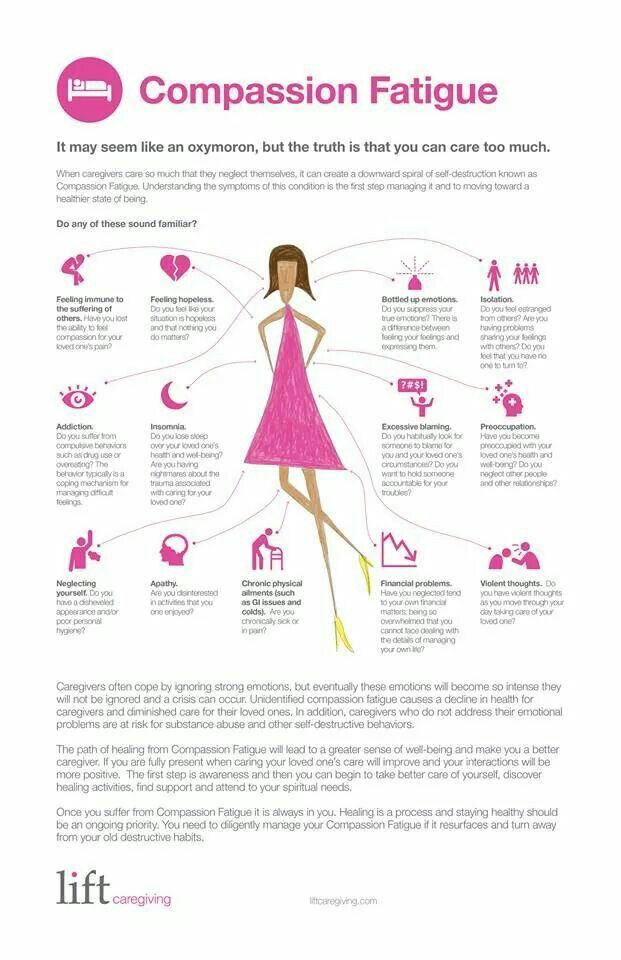 ), if this is required by the interests of the ward.
), if this is required by the interests of the ward.
2. For the conclusion of the transactions referred to in subparagraphs 1)-5) aimed at the alienation of immovable property belonging to the ward, prior permission of the guardianship and guardianship authority is required.
2.4. PRELIMINARY PERMISSION OF THE AUTHORITY OF GUARDIANCY AND CUSTODIA, AFFECTING THE EXERCISATION OF THE PROPERTY RIGHTS OF THE GUARD (Article 21 of the Law)
1. The guardian, without prior permission of the body of guardianship and guardianship, shall not have the right to make, and the trustee shall not have the right to give consent to the conclusion of transactions for the lease, lease, gratuitous use or pledge, for the alienation of the property of the ward (including the exchange or donation), transactions entailing the waiver of the rights belonging to the ward, the division of his property or the allocation of shares from it, and the conclusion of any other transactions that entail a decrease in the value of the property of the ward. Prior permission from the body of guardianship and guardianship is also required in all other cases, if the actions of the guardian or custodian may entail a decrease in the value of the property of the ward, including when:
Prior permission from the body of guardianship and guardianship is also required in all other cases, if the actions of the guardian or custodian may entail a decrease in the value of the property of the ward, including when:
1) refusal of the claim filed in the interests of the ward;
2) conclusion of a settlement agreement in court proceedings on behalf of the ward;
3) the conclusion of a settlement agreement with the debtor on enforcement proceedings, in which the ward is a recoverer.
2. Prior permission of the body of guardianship and guardianship is required in cases of issuing a power of attorney on behalf of the ward.
3. The preliminary permission of the body of guardianship and guardianship, provided for in parts 1 and 2 of Article 21 of the Law, or the refusal to issue such permission must be provided to the guardian or trustee in writing no later than fifteen days from the date of filing an application for such permission. The refusal of the guardianship and guardianship authority to issue such a permit must be motivated. A preliminary permit issued by the body of guardianship and guardianship, or a refusal to issue such a permit, may be challenged in court by a guardian or trustee, other interested persons, as well as a prosecutor.
A preliminary permit issued by the body of guardianship and guardianship, or a refusal to issue such a permit, may be challenged in court by a guardian or trustee, other interested persons, as well as a prosecutor.
4. If the fact of concluding an agreement on behalf of the ward without prior permission of the guardianship and guardianship body is discovered, the latter is obliged to immediately apply on behalf of the ward to the court with a request to terminate such an agreement in accordance with civil law, except if such an agreement is concluded to the benefit of the ward. Upon termination of such an agreement, the property belonging to the ward is subject to return, and the losses caused to the parties to the agreement are subject to compensation by the guardian or trustee in the amount and in the manner established by civil law.
5. The rules established by paragraph 3 of Article 21 of the Law shall also apply to the issuance by the body of guardianship and guardianship of consent to the alienation of residential premises, in cases provided for in paragraph 4 of Article 292 Civil Code of the Russian Federation.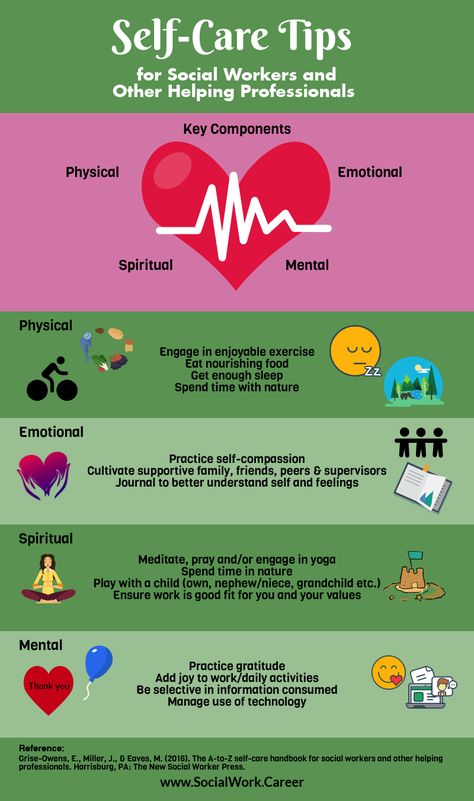
3. REPORT OF THE GUARDIAN OR TRUSTEE (Article 25 of the Law)
1. The guardian or custodian annually no later than February 1 of the current year, unless another period is established by the agreement on the implementation of guardianship or guardianship, shall submit to the body of guardianship and guardianship a report in writing for the previous year on the storage, use of the property of the ward and on the management of the property of the ward .
2. The report of the guardian or custodian must contain information on the state of the property and the place of its storage, the acquisition of property to replace the alienated one, the income received from the management of the property of the ward, and the expenses incurred at the expense of the property of the ward, including information on the expenditure of amounts credited to a separate nominal account , opened by a guardian or trustee in accordance with paragraph 1 of Article 37 of the Civil Code of the Russian Federation. Documents (copies of sales receipts, receipts for payment of taxes, insurance amounts and other payment documents) confirming the specified information are attached to the report of the guardian or trustee, with the exception of information about the expenses incurred at the expense of the ward for food, basic necessities and other minor household needs . A guardian who is a parent of an incapacitated citizen who has been disabled since childhood, cohabiting with such a citizen and raising him from birth until he reaches the age of eighteen years, or an adoptive parent of such a citizen, cohabiting with him and raising him from the moment of adoption and until he reaches the age of the age of eighteen years, shall have the right not to include in the report information on the expenditure by this guardian of the amounts credited to a separate nominal account opened by the guardian. The body of guardianship and guardianship, upon detection of improper performance by this guardian of the duties of protecting the property of the ward and managing the property of the ward, has the right to demand from this guardian to provide a report on the storage, use of the property of the ward and on the management of the property of the ward for previous periods, containing information on the expenditure by this guardian of amounts, credited to a separate nominal account opened by a guardian.
Documents (copies of sales receipts, receipts for payment of taxes, insurance amounts and other payment documents) confirming the specified information are attached to the report of the guardian or trustee, with the exception of information about the expenses incurred at the expense of the ward for food, basic necessities and other minor household needs . A guardian who is a parent of an incapacitated citizen who has been disabled since childhood, cohabiting with such a citizen and raising him from birth until he reaches the age of eighteen years, or an adoptive parent of such a citizen, cohabiting with him and raising him from the moment of adoption and until he reaches the age of the age of eighteen years, shall have the right not to include in the report information on the expenditure by this guardian of the amounts credited to a separate nominal account opened by the guardian. The body of guardianship and guardianship, upon detection of improper performance by this guardian of the duties of protecting the property of the ward and managing the property of the ward, has the right to demand from this guardian to provide a report on the storage, use of the property of the ward and on the management of the property of the ward for previous periods, containing information on the expenditure by this guardian of amounts, credited to a separate nominal account opened by a guardian.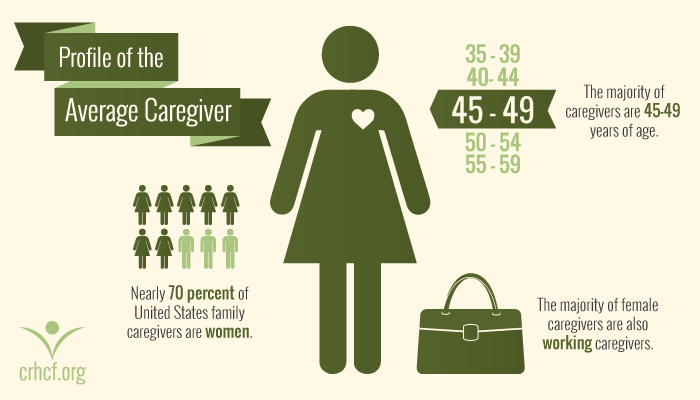
3. The report of the guardian or trustee is approved by the head of the guardianship and guardianship body.
4. Upon approval of the report of the guardian or custodian, the body of guardianship and guardianship excludes from the inventory of the property of the ward the things that have become unusable and makes appropriate changes to the inventory of the property of the ward.
5. The report of the guardian or custodian shall be kept in the personal file of the ward. The rules for maintaining the personal files of wards, the form of the report of the guardian or trustee are established by the Government of the Russian Federation.
4. RELEASE AND REMOVAL OF GUARDIANS AND TRUSTEES FROM THE PERFORMANCE OF THEIR DUTIES (Article 39 of the Code, Article 29 of the Law)
1. The guardian, the trustee may be released from the performance of their duties at their request.
2. The guardian or custodian may be relieved of his duties at the initiative of the guardianship and guardianship body in the event of conflicts between the interests of the ward and the interests of the guardian or custodian, including temporarily.
3. In cases of improper fulfillment by the guardian or custodian of the obligations on him, violation of the rights and legitimate interests of the ward, including when exercising guardianship or guardianship for personal gain or leaving the ward without supervision and necessary assistance, revealing by the body of guardianship and guardianship the facts of a significant violation guardian or custodian of the rules established by federal law or an agreement for the protection of the property of the ward and (or) disposal of his property, the body of guardianship and trusteeship may remove the guardian or custodian from the performance of these duties and take the necessary measures to bring the guilty citizen to liability established by law.
5. RESPONSIBILITY OF GUARDIAN AND TRUSTEE (Article 26 of the Law)
1. Guardians are liable for transactions made on behalf of the wards, in the manner prescribed by civil law.
2. Guardians and custodians are responsible for the harm caused through their fault to the person or property of the ward, in accordance with the rules on liability for causing harm provided for by civil law.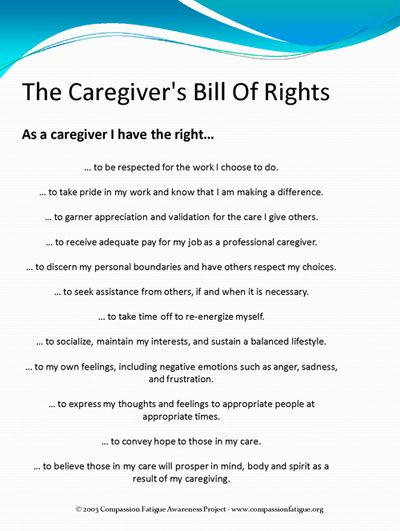
3. Upon detection of improper performance by the guardian or custodian of the duties of protecting the property of the ward and managing the property of the ward (damage, improper storage of property, spending property for other purposes, committing actions that led to a decrease in the value of the property of the ward, and more), the guardianship and guardianship body is obliged draw up an act on this and present a claim to the guardian or trustee for compensation for losses caused to the ward.
4. Guardians and trustees bear criminal liability, administrative liability for their actions or inaction in the manner prescribed by law Russian Federation, the legislation of the subjects of the Russian Federation.
Release of a guardian or custodian from the performance of their duties
Applicants have the right to a pre-trial (out-of-court) appeal against decisions and actions (inaction) taken (carried out) by local governments, officials, municipal employees of local governments in the course of providing public services. The pre-trial (out-of-court) appeal procedure does not exclude the possibility of appealing against decisions and actions (inaction) taken (carried out) in the course of providing public services in court. The pre-trial (out-of-court) appeal procedure is not mandatory for the applicant.
The pre-trial (out-of-court) appeal procedure does not exclude the possibility of appealing against decisions and actions (inaction) taken (carried out) in the course of providing public services in court. The pre-trial (out-of-court) appeal procedure is not mandatory for the applicant.
The subject of pre-trial (out-of-court) appeal are:
- violation of the deadline for registration of the applicant's request for the provision of public services;
- violation of the term for the provision of public services;
- requirement from the applicant of documents that are not provided for by the regulatory legal acts of the Russian Federation, the regulatory legal acts of St. Petersburg, for the provision of public services;
- refusal to accept documents from the applicant, the provision of which is provided for by the regulatory legal acts of the Russian Federation, the regulatory legal acts of St. Petersburg, for the provision of public services;
- refusal to provide a public service, if the grounds for refusal are not provided for by federal laws and other regulatory legal acts of the Russian Federation adopted in accordance with them, regulatory legal acts of St.
 Petersburg;
Petersburg; - requirement from the applicant when providing a public service of a fee not provided for by the regulatory legal acts of the Russian Federation, the regulatory legal acts of St. Petersburg;
- refusal of a local government body, a municipal employee of a local government body providing a public service, to correct typographical errors and errors in documents issued as a result of the provision of a public service, or violation of the deadline for such corrections.
The complaint is submitted in writing on paper, in electronic form to the local government. Complaints against decisions made by an official of a local self-government body are submitted to the Government of St. Petersburg.
A complaint can be sent by mail, through the MFC, using the Internet information and telecommunications network, the official website of the local government, a single portal of state and municipal services or a regional portal of state and municipal services, and can also be accepted at the personal reception of the applicant.
The complaint must contain:
- name of the local self-government body, official of the local self-government body or municipal employee of the local self-government body whose decisions and actions (inaction) are being appealed;
- last name, first name, patronymic (the last name, if any), information about the place of residence of the applicant - an individual or name, information about the location of the applicant - a legal entity, as well as the contact phone number (numbers), email address (s) (if available) and the postal address to which the response should be sent to the applicant;
- information about appealed decisions and actions (inaction) of a local government body, an official of a local government body or a municipal employee of a local government body;
- arguments on the basis of which the applicant does not agree with the decision and action (inaction) of the local government, an official of the local government, or a municipal employee of the local government.
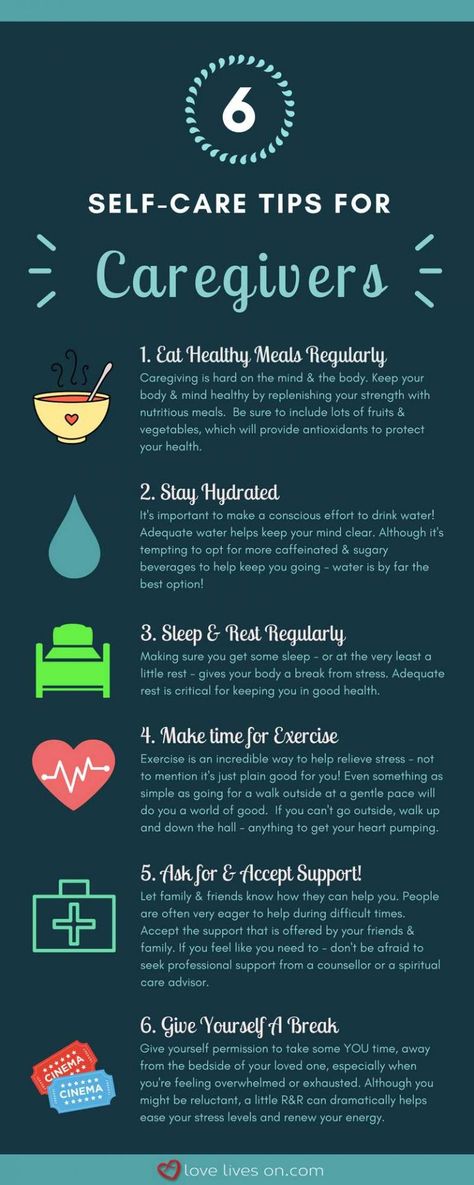 The applicant may submit documents (if any) or their copies confirming the applicant's arguments.
The applicant may submit documents (if any) or their copies confirming the applicant's arguments.
The complaint received by the local authorities is subject to consideration within the following terms:
- within fifteen working days from the date of registration of the complaint;
- within five working days from the date of registration of the complaint in the event of an appeal against the refusal of a local government body, an official of a local government body to accept documents from the applicant or to correct misprints and errors, or in case of appealing against a violation of the deadline for such corrections;
- at other times in cases established by the Government of the Russian Federation.
Based on the results of consideration of the complaint, the local government takes one of the following decisions:
- satisfies the complaint, including in the form of cancellation of the decision, correction of misprints and errors made by the local government in documents issued as a result of the provision of public services;
- denies the complaint.
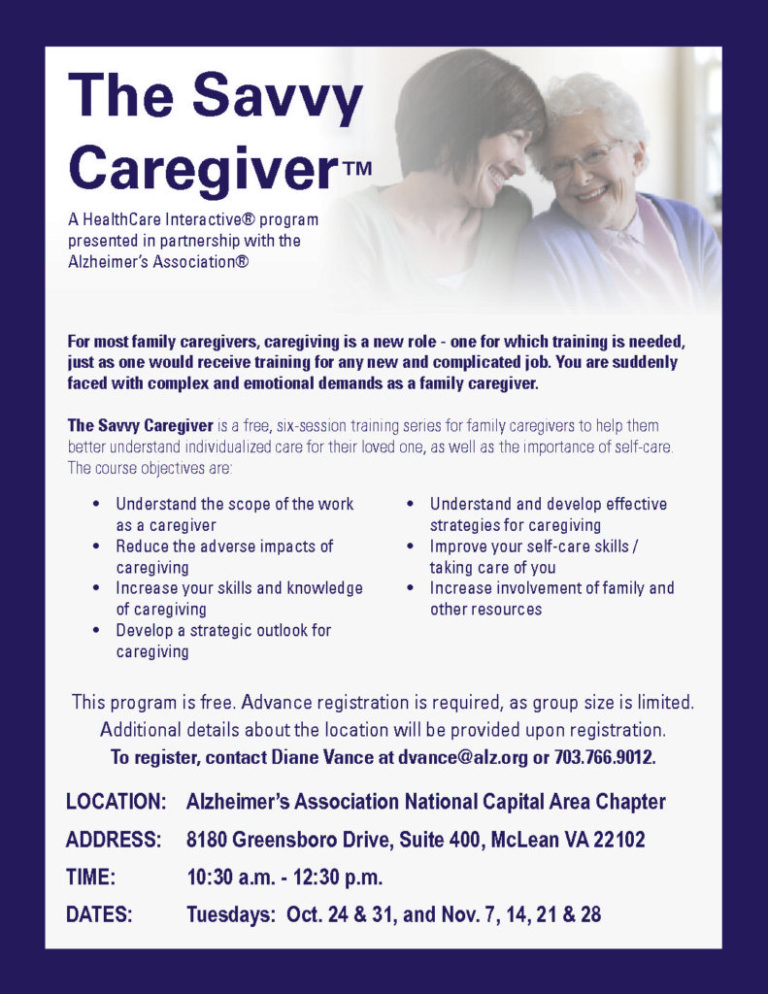
Not later than the day following the day of the decision, the applicant in writing and at the request of the applicant in electronic form shall be sent a reasoned response on the results of the consideration of the complaint.
When considering a complaint by a local self-government body, a citizen has the right to:
- get acquainted with the documents and materials related to the consideration of the complaint, if this does not affect the rights, freedoms and legitimate interests of other persons and if these documents and materials do not contain information constituting a state or other secret protected by federal law;
- receive a written response on the merits of the issues raised in the complaint, notification of forwarding the written appeal to the state body, local government or official whose competence includes resolving the issues raised in the appeal;
- appeal against the decision or action (inaction) in connection with the consideration of the appeal in an administrative and (or) judicial manner in accordance with the legislation of the Russian Federation;
- submit additional documents and materials or apply for their reclamation, including in electronic form;
- apply for termination of consideration of the complaint.
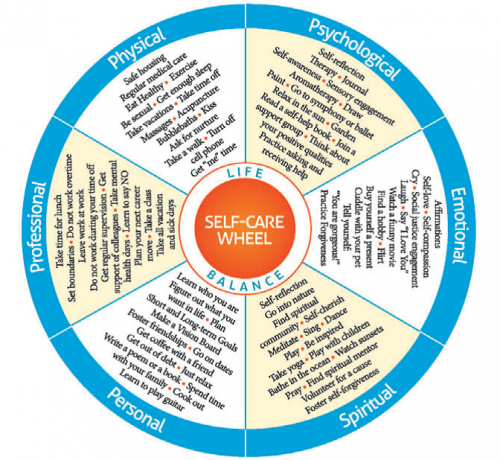
In the event that, during or as a result of the consideration of a complaint, signs of an administrative offense or crime are established, the official empowered to consider complaints immediately forwards the available materials to the prosecutor's office.
The applicant has the right to receive information and documents necessary to substantiate and consider the appeal (complaint). Local self-government bodies, its officials, municipal employees of the local self-government body are obliged to provide the applicant with the opportunity to familiarize themselves with the documents and materials related to the consideration of the appeal (complaint), if this does not affect the rights, freedoms and legitimate interests of other persons and if these documents and materials do not contains information constituting a state or other secret protected by federal law.
Executive bodies of state power of St. Petersburg and officials to whom the complaint (claim) of the applicant may be addressed in the pre-trial (out-of-court) procedure
If the subject of the complaint (claim) of the applicant is the actions of the local government providing public services, the complaint (claim) may be sent to the Committee for Social Policy of St.